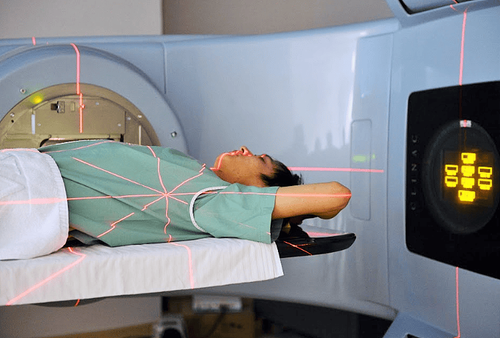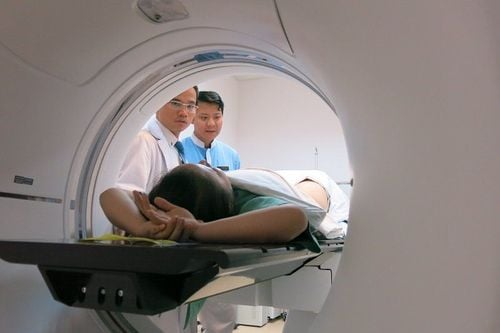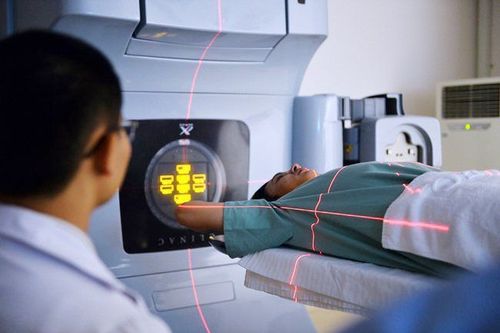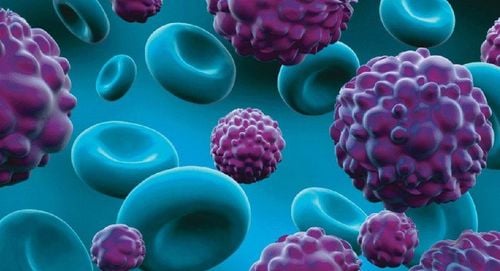This is an automatically translated article.
The article is professionally consulted by doctors working at Oncology Center - Vinmec Central Park International General HospitalEach radiotherapy session takes only 10-20 minutes. Treatment will usually begin 2 - 4 weeks after your scheduled radiotherapy appointment. You will be given different treatment time frames, the reasons for this will be explained in detail by the radiation therapist at your consultation.
1. When should radiation therapy be given?
Your doctor will recommend radiation therapy when the benefits outweigh the side effects:
If you are a woman of childbearing age, you should not become pregnant before or during radiation therapy because the treatment can harm an unborn baby, especially during the first trimester of pregnancy. Please discuss with your doctor, nurse, nurse or radiation technician if you think you may be planning to (or are) pregnant. Your doctor will also be able to advise you on how long you should wait before getting pregnant.
Radiation therapy does not make you radioactive or dangerous to be around. Once you have left the radiation room each day, it is completely safe to interact with children and pregnant women.
2. Radiotherapy steps and notes

Bệnh nhân sẽ được điều trị sau khi hiểu rõ và đồng ý với phương pháp đã cùng đội ngũ điều trị vạch ra
Consent to Treatment You will be asked to sign a consent form after you are satisfied that you have all the information you need and that all your questions are answered. This is a written statement confirming that you have been explained and agreed to the planned radiation therapy you have outlined with your treatment team.
Your medical team During your treatment at the radiation center, you will meet many different members of the medical team. This group is often referred to as the Radiation Group. The team will have an oncologist (radiotherapy doctor), radiation nurse, or radiation technician. Technicians operate radiation machines to perform radiation therapy prescribed by your doctor and provide you with radiation therapy. You will not meet a planner and a physical engineer, but they are all members of the Radiation Therapy Planning Team.
All members of your Radiation Team work closely together. They can give you help and advice about any aspect of your treatment. Don't be afraid to ask them anything you are concerned or worried about.
Plan your treatment We must make sure that the area of your body being treated includes all cancer cells and any areas that may harbor cancer cells. We try as hard as we can to avoid targeting healthy cells.
When you arrive at the treatment center, you should notify the reception desk and give your appointment slip. You may need to wear a mask during treatment. This helps you keep your body still during treatment and ensures that the beam is delivered to exactly the same area each day. Masks are an important part of the planning process and can take some time to complete. A mask is not a shield or barrier to the effects of radiation. Many patients feel suffocated, worried about having a mask on their face. However, rest assured, almost every human patient gets the very best care and help is always available if you need it.
Please note: If you have a beard or mustache, you should shave it off before you apply the mask during your treatment. Your mask is measured and made and molded to fit you around your head and neck area. Your mask may not be suitable for you if you have hair in this area. Please speak with your radiation therapist if you have any questions regarding this.
Most patients receiving radiation therapy to the head and neck area receive a mask. To make this mask, a warm plastic material is molded directly onto your skin and held until it solidifies. The material may be a little warm, but it won't make you feel too hot.
Radiotherapy planning is usually done on a CT scanner called a CT simulator. Thanks to the image of the simulated CT, the doctor can pinpoint the exact location to be radiation. Vinmec International General Hospital owns the most modern 128-sequence PET/CT system in Southeast Asia, giving accurate images and short shooting time.

Máy CT mô phỏng tại Đơn vị xạ trị - Trung tâm Ung bướu - Bệnh viện Vinmec Central Park
After all the scans, images and measurements are taken, the rest of the treatment plan will follow over the next few weeks with the help of a physical engineer or planner . They help doctors decide the best way to ensure the quality of your radiation therapy.
Dietitian assessment A dietitian can be involved with your healthcare team to help you maintain a healthy weight and give you nutritional advice during treatment. treat. Maintaining a healthy weight during treatment is important in helping you recover well during and after treatment.
Evaluation by a medical oncologist Your consultant may recommend some chemotherapy in combination with radiation therapy . You may have this consultation before and/or during radiation therapy. If your doctor feels you might benefit from this combination treatment, he or she will discuss this with you.
3. Radiation therapy
When will treatment start? Your treatment will usually begin 2 - 4 weeks after your scheduled radiotherapy appointment. You will be given a different treatment time frame, the reasons for this will be explained in detail by the radiation therapist at your consultation.
During treatment At each treatment, the radiotherapy technician will take you into the treatment room and help you make sure that your lying position receives the most effective radiation in the correct position. After checking everything, they will leave the room for a short time so that the treatment can be done. You won't feel anything, but you can hear a continuous series of small sounds. This is quite normal and means treatment is ongoing. During your treatment, radiotherapy technicians will monitor you on a television screen and may talk to you via an intercom. They can also hear you. You can ask the medical staff to play your favorite music to listen to while you are having radiation therapy. Each treatment may require 10-20 minutes. During your treatment, scans or X-rays will be taken regularly in the treatment room to monitor where you are and the body area being treated.
It is very important that you lie still in the same position for each treatment. This will be quite comfortable since you are almost always lying on your back.
Some days you may notice some changes in the way radiotherapy technicians give you. For example, they can perform scans, measure or change the angles of the machine. Every effort will be made to ensure that the changes result in better results and are explained to you before implementation but if you are concerned about anything please feel free to Please just exchange questions.
You will probably see many other patients in the waiting area every day. While you may think your treatment is similar to someone else's, the treatment for each patient is often very different. Therefore, if you are comparing stories and hear something that worries you, please just ask a doctor or one of your radiation therapists.
Although your treatment only takes about 10 - 20 minutes a day, it may take longer on days when you see a doctor, nurse or any other healthcare professional for advice .
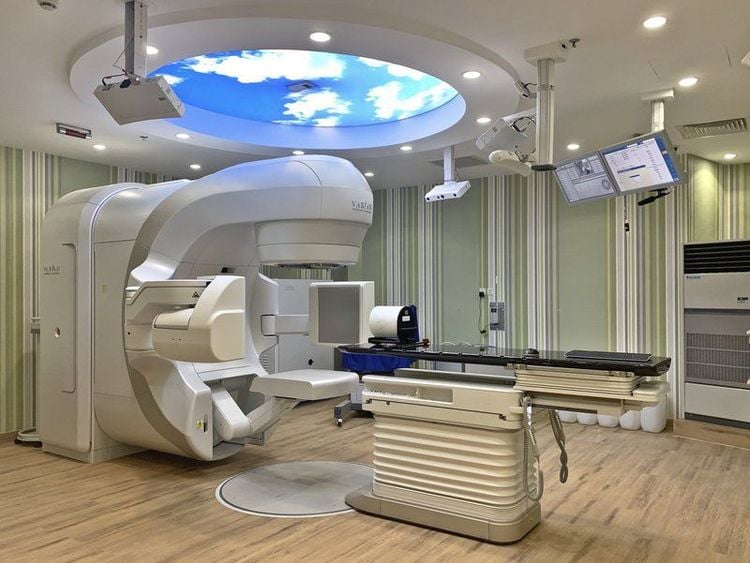
Máy xạ trị Truebeam tại Đơn vị xạ trị-Trung tâm Ung bướu - Bệnh viện Vinmec Central Park
Rest assured that we will always do our best to keep your waiting time to a minimum. If your treatment is canceled any day due to a service or machine failure, you will receive one more treatment, which means you will always receive the exact number of treatments that your doctor prescribes. calculated for you.
You will see your doctors or nurses every one to two weeks and daily by your technicians.
To learn more about radiation therapy for cancer at Vinmec, you can contact HOTLINE: 0938 506 009 or register online HERE
Invite readers to refer to the rest of the Patient Support Documents Radiotherapy:
MORE:
What is radiation therapy? The role of radiation therapy Side effects of radiotherapy An information guide to support patients receiving radiation therapy to the head and neck area





